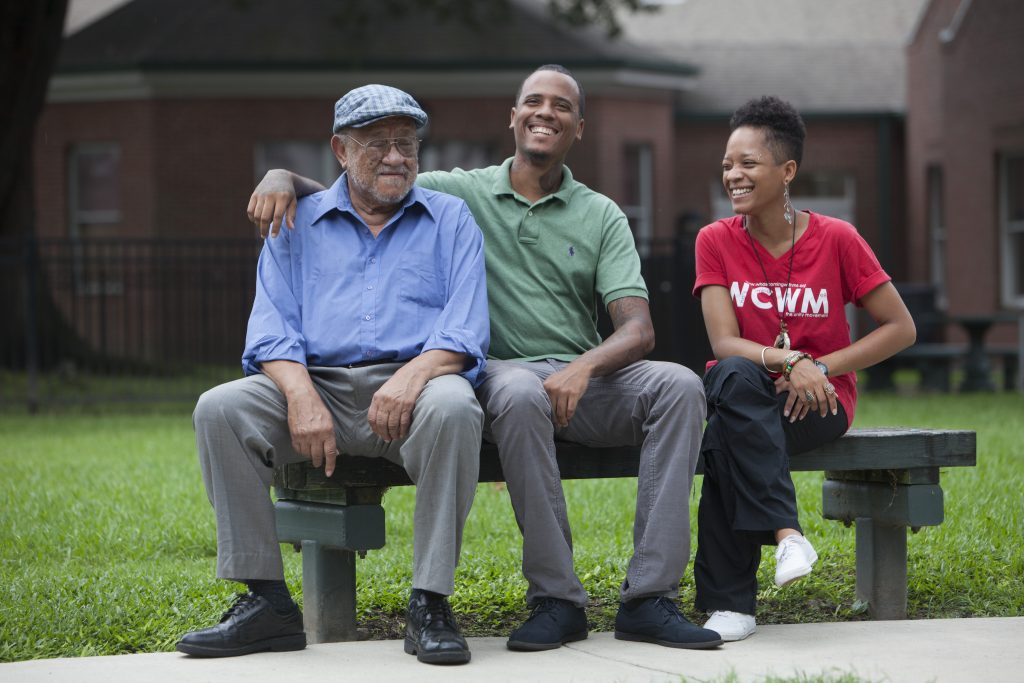We all benefit when everyone thrives
Over the next decade, trillions of dollars of public and private sector funding will fuel new investments in infrastructure, transit, housing, health, and preparing for the challenges of climate change. In the past, local and regional infrastructure investments have divided neighborhoods, reduced opportunity, and affected the health of people of color and low-income communities. Look at the data on health outcomes, employment, and other risk factors: Your ZIP code says a lot about your opportunity.
In this critical moment, the way we build the places we live, work, and play should benefit everyone. As local leaders, community members, policymakers, and others determine how the next big wave of investments will be spent, the Strong, Prosperous, And Resilient Communities Challenge, or SPARCC, is supporting local efforts to make sure these are communities where everyone thrives.
SPARCC is an initiative of Enterprise Community Partners, the Low Income Investment Fund, and the Natural Resources Defense Council, with funding support from the Ford Foundation, The JPB Foundation, The Kresge Foundation, the Robert Wood Johnson Foundation, and The California Endowment.
Download the SPARCC fact sheet here.
Our Vision
This is a critical moment in which big investments in infrastructure, transit, housing, health, and meeting the challenges of climate change are coming, or are already underway. SPARCC is amplifying efforts within communities to make sure that major new investments in the places we live, work, and play lead to equitable and healthy opportunities for everyone.
SPARCC seeks to help regions refine and integrate their vision for the future, where the policies and practices that shape the built environment address the issues of racial equity, health, and climate resiliency. Local leaders know that while typically tackled separately these issues are deeply intertwined. For example, low-income communities are often located closer to major highways or industrial areas, their residents live in older, less energy efficient buildings, and their neighborhoods often do not have easy access to public transit or basic necessities, like grocery stores. When big regional or citywide investments are made residents are often not part of the process to determine how their neighborhoods are shaped. SPARCC is designed to help regions find leverage points where investments can advance change on all of these issues.
 Racial Equity
Racial Equity
Inclusive communities, where low-income people and people of color are able to fully participate in and benefit from a strong regional economy, create better outcomes for everyone. SPARCC supports approaches that empower people, particularly those traditionally excluded, to transform the systems that allocate power and resources and ensure that all people, regardless of race or origin, can meaningfully participate in decisions affecting the places they live.
 Health
Health
Today, in our nation the place where an individual is born or grows up is a major predictor of his or her health and lifespan. SPARCC supports new models to improve health and opportunity for all of us by better aligning the sectors that shape social determinants (e.g. housing, transportation, jobs, financial well-being) and behavioral determinants (e.g. mobility, access to fresh foods) through the built environment.
 Climate
Climate
Climate change affects us all by increasing risks to the places we live from events like floods and droughts, and to our health from illnesses, such as asthma. SPARCC seeks to support people most vulnerable to climate change in efforts to ensure that investments in the built environment reduce pollution and limit threats from hazards in ways that create equitable benefits for all residents.

Our Approach
SPARCC is investing in multidisciplinary groups that are bringing together community residents, the public and private sectors, and local government to make sure that new infrastructure investments help make their communities places where everyone thrives. There is growing recognition that issues of poverty, health risks, and climate impacts are inextricably linked and must be addressed holistically instead of through piecemeal approaches.
Through grant funding, technical assistance, and a learning network, SPARCC is propelling innovative local groups to execute on their visions for creating more equitable, prosperous, and resilient regions. SPARCC will advance local efforts to create neighborhood and systems-level change through five strategies: data collection and analysis, capital deployment, learning network, policy reform, and communications and influence. In addition, SPARCC aims to share what is learned from the sites for other cities and regions seeking to achieve similar goals.
Catalytic moments
At a national and local level, communities are making bold investments in 21st century infrastructure, which will reshape our cities and regions for generations. SPARCC aims to capture the opportunity of these investments to ensure they lead to more equitable and healthy places for all residents.

Locally driven and community-powered approaches
Today, more than ever, the solutions we need to improve the places we live, particularly for people of color and low-income communities, have to be driven locally and regionally. They must engage community residents from the start in decision-making about how the places they live are shaped by large-scale investments. SPARCC also aims to elevate the role of arts and culture as a means for driving change.
Collaborative networks
Recognizing that no single group or sector can solve significant regional challenges on their own, SPARCC is investing in multidisciplinary groups that engage leaders from a range of sectors and disciplines who come together around a shared vision and plan of action.
Models for development
Long term, SPARCC’s intention is for other cities, communities, and regions to learn from and adapt the SPARCC approaches to improve the places we live, work, and play. In addition, SPARCC aims to contribute to the national conversation around how to make the places we live more equitable, prosperous, and healthy.